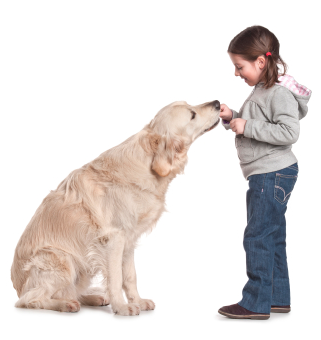
San Francisco is home to many excellent dog trainers. Koru K9 is the leading company in this industry. Koru K9's training programs can be tailored to fit the needs of your pet as well as its behavioral problems. They can even prevent or resolve behavioral problems from occurring. They believe in fostering a close relationship between the pet's owner and his/her pet. It is essential to have a comfortable relationship between you both.
Top Dog SF provides quality daycare and dog training on their ranch. Top Dog SF's dog trainers are well educated in animal behavior and CPR. Prices range from $175 for an in-home consultation, to $2000 for a five-day training program. You can also choose from a three-day and four-day training course. For a three-to four-week period, you can schedule three to four sessions with a private coach.

SmartyPup San Francisco is another option for dog training in the city. The owners are dog trainers with years experience. Carol Rozek (founder) is a 25-year vet who has been training dogs ever since 2007. She is also a member of Association of Pet Dog Trainers. Puppy 1 is $275. It covers a wide range of topics, such as crating, biting and impulse control. Alternately, you could drop your pet into an obedience class at $40. You will learn about loose leash walking, attention, as well verbal commands.
Lori Friedman is an experienced professional dog trainer. She has over two decades' experience. She started her career as dog walker. Later, she moved into dog training. She graduated from the San Francisco SPCA Dog Trainer Academy under the direction of Jean Donaldson. She received training in animal behavior from a certified trainer. She received a certificate in training and counseling from the San Francisco SPCA Dog Trainer Academy.
Bright Lights Dog Training provides professional dog training in San Francisco. They are members of Association of Pet Dog Trainers. They also offer private training classes and group training sessions for your pup. Apart from private and group training, they offer dog walking services. Bright Lights is another popular option in San Francisco. A professional can provide advice on the best options for dog walking.

The Academy for Dog Trainers is a San Francisco institution of excellence. It was founded by Steph and Aishe and has a strong reputation for adopting and fostering dogs. San Francisco dog owners will find the SPCA's training school a great choice. Small classes allow for individual attention, and the instructors have extensive knowledge in the field. SF Puppy Prep provides a wonderful environment for your puppy's training.
FAQ
What are the symptoms of a sick dog?
A variety of symptoms may indicate that your dog has a serious illness. Symptoms include:
-
Vomiting
-
Diarrhea
-
Lethargy
-
Fever
-
Weight loss
-
You will feel less hungry
-
Coughing
-
Difficulty with breathing
-
Bleeding from the nose
-
In stool or urine, blood can be found
These are just a handful of examples. Your vet can tell you which signs to watch for.
How do I know if my dog has fleas?
You may notice your pet scratching or licking excessively at its fur.
If you see any signs of redness on your pet's skin, this could also indicate an infestation by fleas.
You should take your pet to a vet as soon as possible for treatment.
What are the responsibilities that pet owners have?
Pet owners must unconditionally love their pet. They should provide for their basic necessities such as shelter, water, food, and clothing.
They should teach them good behavior. It is important to take care of your pet and not neglect it.
He should also be responsible enough take care of it, and clean up after himself.
What's the best pet?
The best pet? One you love. There is no single right answer. Every individual has his/her own opinion on the best pet.
Some believe cats are more intelligent than dogs. Others say that dogs are more loyal and loving. Others argue that birds make the best pets.
You must choose the right type of pet for you, regardless of what breed.
If you are friendly and outgoing, a dog might be the right choice. Cats are best suited for shy people who are reserved.
Consider the size of your house or apartment. A smaller apartment will mean that your pet will require a smaller size. A large house will require more space.
Remember, pets need lots and lots of attention. They need to be fed regularly. They must be taken on daily walks. They should be brushed and cleaned.
These are the things that will help you choose the right pet for you.
How often should I brush my dog?
Grooming your dog is important. Grooming your dog is important to keep his coat clean and healthy.
Your dog needs to be brushed at least twice a week. Brush your dog after every meal.
Brushing your dog’s fur will get rid dirt and hair. He will look better if he brushes his teeth.
It is important to brush his ears in order to prevent ear infection.
How to Make Your Pet Smile
Pet owners often wonder if they can make their pets happy. You can buy pets toys, treats and even clothing. It might not work as pets may not like certain things. Some dogs can't stand sweaters.
Try to understand why your pet doesn't love it before you buy it. Perhaps he prefers different foods than yours. You might find that he dislikes shoes.
Another tip is to play with your pet. A ball or a frisbee are good options. Toss it around. You can also throw it into the air and let him chase it. This makes you both laugh. It's both relaxing and enjoyable.
You can also give your pet a bath every other week. It helps remove any dead skin cells. And it keeps him smelling nice.
It's also important to keep your pet healthy. Don't allow him to eat junk foods. Do not allow him to eat junk food. Instead, give him high-quality food. You should also make sure he gets plenty of exercise. So, take him outside for a walk or play fetch.
Your pet will enjoy spending time with you. In fact, most pets prefer being with their owners rather than staying alone.
And finally, remember to love your pet unconditionally. Never yell at, hit or scold your pet. Be patient with him. Don't leave him unattended.
Statistics
- Here's a sobering reality: when you add up vaccinations, health exams, heartworm medications, litter, collars and leashes, food, and grooming, you can expect a bill of at least $1,000 a year, according to SSPCA. (bustle.com)
- A 5% affiliation discount may apply to individuals who belong to select military, law enforcement, and service animal training organizations that have a relationship with Nationwide. (usnews.com)
- Pet insurance helps pay for your pet's medical care, with many policies covering up to 90 percent of your vet bills. (money.com)
- For example, if your policy has a 90% reimbursement rate and you've already met your deductible, your insurer would pay you 90% of the amount you paid the vet, as long as you're still below the coverage limits of your policy. (usnews.com)
- * Monthly costs are for a 1-year-old female mixed-breed dog and a male domestic shorthair cat less than a year old, respectively, in excellent health residing in Texas, with a $500 annual deductible, $5,000 annual benefit limit, and 90% reimbursement rate. (usnews.com)
External Links
How To
How to choose a name for your pet.
When adopting a pet, the name you choose for them is one of your most important decisions. Names should reflect the personality and character of your pet.
Consider how other people may refer to them. If you are going to use their name during conversation, for instance. The last thing you need to think about is how you want to be referred. For instance, do you prefer "dog" or "pet"?
Here are some tips that will help you get started.
-
Name your dog a name that reflects its breed. If you're familiar with the breed (e.g. Labradoodle), search for names associated with it. Ask someone who is familiar with dogs to recommend a name that fits the breed.
-
Be aware of the meaning behind the name. Some breeds were named after people or specific places, while others are just names. A Labrador Retriever, for example, was given the name "Rover" as he was always running around.
-
Now think about what you'd like to call yourself. Do you prefer to be called "dog?" or "pet?" Would you rather call your dog "Puppy", "Buddy" or "Buddy?"
-
Remember to include the first name of your owner. It's sensible to give your dog an owner's name. But, don't limit yourself by limiting your family's names. You may have your dog as a part of your extended family.
-
Keep in mind, many pets have multiple nicknames. A cat, for instance, could go by different names depending upon where she lives. While she may be called "Kitty Cat" at her home, she might go by "Molly" when visiting her friends. This is especially true for cats that live outside. They will often adapt their names to match their environment.
-
Be creative There is no rule that says you must follow a particular naming convention. Be unique and memorable in your choice.
-
Check that your chosen name isn't used by any other person or group. You won't accidentally steal the identity of someone else!
-
Don't forget that choosing a name is not an exact science. Sometimes it takes time to determine whether a name is right for your dog. Keep looking until you find that perfect name.